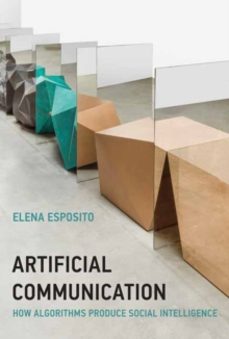Imprescindibles
Más vendidos Libros más leídos eBooks más leídos Todos los libros Todos los libros Autores destacados Series y sagas
Recomendados Libros recomendados Autores destacados Libros que inspiran Vidas con historia LGTBIQ+ English books
Ficción
Literatura Contemporánea Estudios literarios Clásicos Cuentos Poesía Teatro Libros de bolsillo Sagas literarias
Géneros literarios Novela romántica y erótica Novela negra Novela histórica Narrativa fantástica Novela de ciencia ficción Novela de terror Narrativa de humor Narrativa de viajes
No Ficción
Ciencias y tecnología Biología Ciencias Ciencias naturales Divulgación científica Informática Ingeniería Matemáticas Medicina Salud y dietas Formación Idiomas Estilo de vida Libros de Cocina Guías de viaje Narrativa de viajes Deportes Libros de Juegos Manualidades
Humanidades Autoayuda y espiritualidad Ciencias humanas Derecho Economía y Empresa Psicología y Pedagogía Filosofía Sociología Filología Biblioteconomía Estudios filológicos Estudios lingüísticos Estudios literarios Historia y crítica de la Literatura
Infantil
Juvenil
#Jóvenes lectores Narrativa juvenil Clásicos adaptados Libros Wattpad Libros Booktok Libros de influencers Libros de Youtubers Libros Spicy Juveniles Libros LGTBIQ+ Temas sociales Libros ciencia ficción Libros de acción y aventura Cómic y Manga Juvenil Cómic Juvenil Manga Shonen Manga Shojo Autores destacados Jennifer L. Armentrout Eloy Moreno Nerea Llanes Hannah Nicole Maehrer
Libros de fantasía Cozy Fantasy Dark academia Hadas y Fae Romantasy Royal Fantasy Urban Fantasy Vampiros y hombres lobo Otros Misterio y terror Cozy mistery Policiaca Spooky Terror Thriller y suspense Otros
Libros románticos y de amor Dark Romance Clean Romance Cowboy Romance Mafia y amor Romance dramatico Romcom Sport Romance Otros Clichés Enemies to Lovers Friends to Lovers Hermanastros Slow Burn Fake Dating Triángulo amoroso
Cómic y Manga
Novela gráfica Novela gráfica americana Novela gráfica europea Novela gráfica de otros países Personajes, series y sagas Series y sagas Star Wars Superhéroes Cómics DC Cómics Marvel Cómics otros superhéroes Cómics Valiant
Books in English
Books in English Fiction Non Fiction Comic Teen & Young Adult Main Authors Ken Follett Agatha Christie Stephen King Jane Austen Maggie O’Farrell On sale
Books in English for Young Adults Age 13+ Age 15+ Young Adult Authors Rebecca Yarros Sarah J. Maas Brandon Sanderson Ali Hazelwood Alice Oseman
Audiolibros
Literatura Contemporánea Narrativa fantástica Novela de ciencia ficción Novela de terror Novela histórica Novela negra Novela romántica y erótica Historia Historia universal
Humanidades Autoayuda y espiritualidad Ciencias humanas Economía y empresa Psicología y pedagogía Filosofía Infantil Audiolibros infantiles
Ciencia y tecnología Ciencias naturales Divulgación científica Medicina Salud y dietas Arte Cine Música Historia del arte
eBooks
Literatura Contemporánea Narrativa fantástica Novela de ciencia ficción Novela de terror Novela histórica Novela negra Novela romántica y erótica Juvenil Más de 13 años Más de 15 años Infantil eBooks infantiles
Humanidades Autoayuda y espiritualidad Ciencias humanas Economía y Empresa Psicología y Pedagogía Filosofía Historia Historia de España Historia Universal Arte Cine Música Historia del arte
Ciencia y tecnología Ciencias naturales Divulgación científica Medicina Salud y dietas Filología Estudios lingüísticos Estudios literarios Historia y crítica de la Literatura Estilo de vida Cocina Guías de viaje Ocio y deportes
ELENA ESPOSITO
Recibe novedades de ELENA ESPOSITO directamente en tu email
Filtros
Del 1 al 2 de 2
MIT PRESS 9780262046664
A proposal that we think about digital technologies such as machine learning not in terms of artificial intelligence but as artificial communication Algorithms that work with deep learning and big data are getting so much better at doing so many things that it makes us uncomfortable How can a device know what our favorite songs are or what we should write in an email Have machines become too smart In Artificial Communication Elena Esposito argues that drawing this sort of analogy between algorithms and human intelligence is misleading If machines contribute to social intelligence it will not be because they have learned how to think like us but because we have learned how to communicate with them Esposito proposes that we think of smart machines not in terms of artificial intelligence but in terms of artificial communication To do this we need a concept of communication that can take into account the possibility that a communication partner may be not a human being but an algorithm which is not random and is completely controlled although not by the processes of the human mind Esposito investigates this by examining the use of algorithms in different areas of social life She explores the proliferation of lists and lists of lists online explaining tha
Ver más
Tapa dura
ANTHROPOS 9788476584927
Glosario Sobre La Teoría Social De Niklas Luhmann G. Corsi, E. Espósito y C. Baraldi La intención de los autores es que el presente glosario constituya un instrumento de trabajo. La idea poco usual de redactar una obra de apoyo para el estudio de una teoria aun en amplia discusion en el debate intelectual contemporaneo, como la teoria de los sistemas de Luhmann, surge por la impresion de que en la situacion actual estan presentes una serie de factores que obstaculizan una confrontacion adecuada con ella y que a traves del glosario sea particularmente util para hacer mas faciles los primeros contactos.
Ver más
Tapa blanda
Del 1 al 2 de 2



























